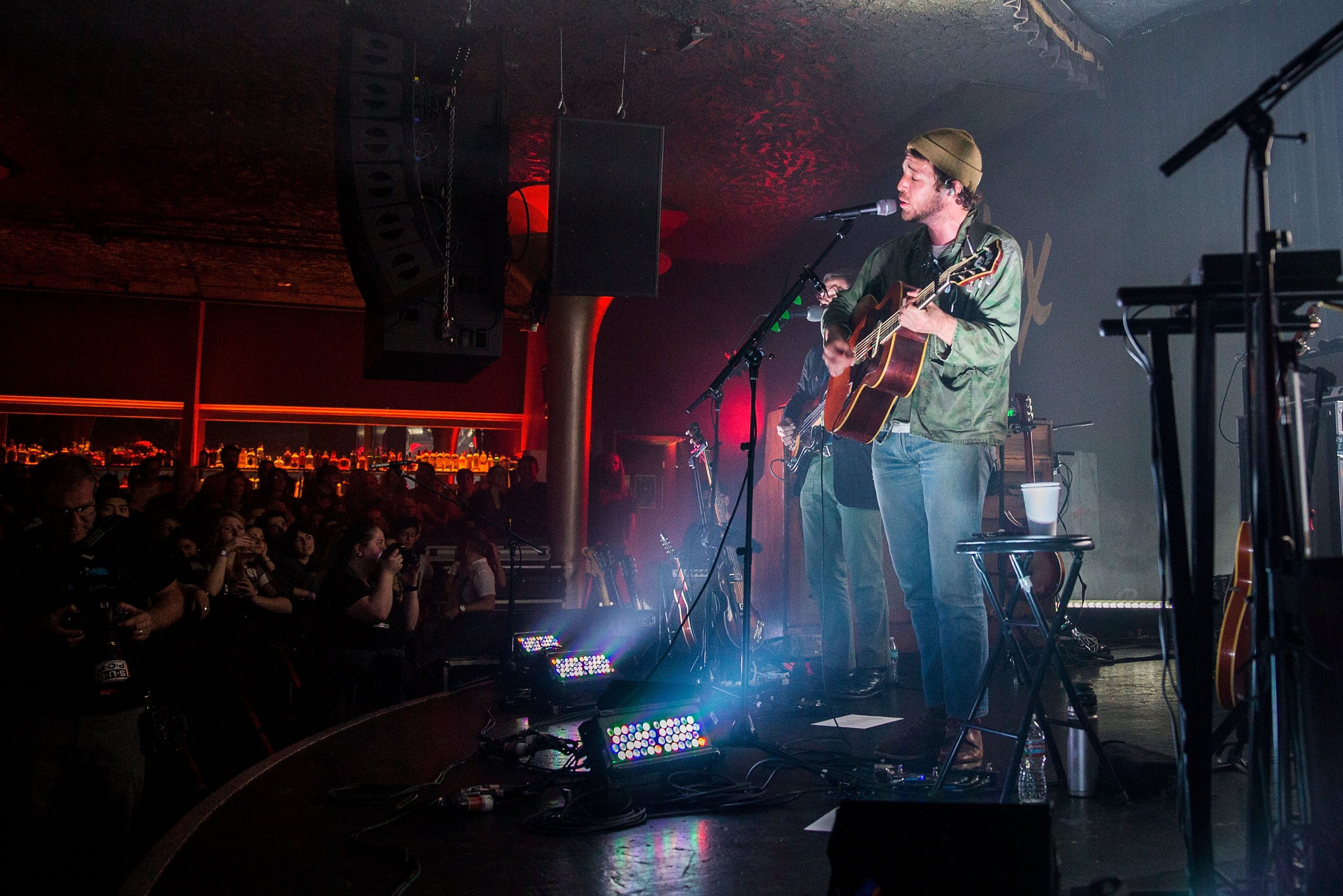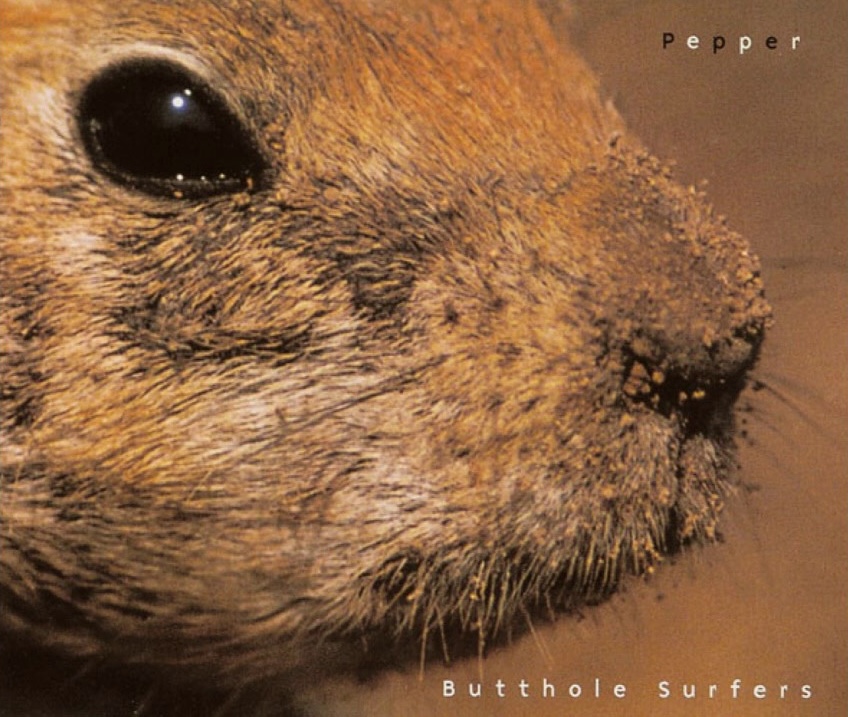I can't be the only one who sees it: The return of Fleet Foxes and the return of Twin Peaks have too much in common to overlook. Falling two days apart on a sun-washed weekend in May, their commingled arrival in the Pacific Northwest was surely pure dumb coincidence. But the more I consider them side by side, the more these revived institutions -- both long-beloved and obsessed-over, both born of the elements of this very elemental place -- inform and reinforce each other. And besides, like Agent Cooper said to Sheriff Truman and Deputy Andy back in 1991, "Fellas, coincidence and fate figure largely in our lives."
No surprise that Fleet Foxes began their new chapter close to home -- or that they sold out their first Seattle show since September 2011 a month in advance. Hype springs eternal, even though we live in a different world now. Back then there was no Black Lives Matter, there was no #Resistance to America's progressive mascot of a President, there were no metal detectors on the way into the show. Back then Fleet Foxes, in all their gorgeous, pastoral glory, were at the height of their global influence and most music geeks still side-eyed any mumblings of "poptimism."
Initial indications leading up to FF2.0 were dubious. Released in early March, "Third Of May/Ōdaigahara," the band's first new song in years, is a multi-movement meander almost nine minutes long. It boasts the band's familiar, stupendously beautiful vocal arrangements but never coalesces into any of conventional composition and avoids anything so pedestrian as a memorable hook or chorus. And that title: esoteric/unpronounceable. The song spoke only to the band's most dedicated diehards. No appealing to new listeners, no recognition of this weird unprecedented time we live in.
To be an artist in 2017 and not grapple with America's fraught reality is a right -- and a privilege. What could a bashful musical savant who'd years ago retreated from the public eye say about the exhaustingly convoluted present? How can a band built on hermetic virtuosity and communal harmonies function in a musical moment powered by defiant individualism, multi-media dilettantism and the disruption of convention? (Spoon and Dirty Projectors, fellow indie-rock alphas of the late '00s, already released albums this year to little of the fanfare they once enjoyed.) Pecknold and Fleet Foxes -- they're an anachronism, a time capsule. Great when they needed to be, attuned to their age. Then they bowed out and relegated themselves to a heyday in the not-so-distant past that nonetheless feels like ancient history. Helplessness Blues was the most articulate expression of post-9/11 disillusionment to emerge from the pop-music landscape. Expecting the new album, Crack-Up, to be as illuminating is asking a lot.
Here's the most telling comparison between then and now: Last time around, Josh Tillman was a supporting member of Fleet Foxes, Pecknold's cynical foil quipping from behind the drum kit. Not long after Helplessness Blues, Tillman shamanized himself into Father John Misty, his louche, arch provocateur the diametric opposite of Pecknold's earnest frontman. In a few short years, Tillman has become the hip-swiveling embodiment of indie rock's id and in the process its most visible -- if not most listenable -- star. Misty, apparently, is what the world wants.
But Tillman is playing a role, and like any role, it comes with a built-in conclusion, after which he's just Tillman again. It's hard to know where one begins and the other ends (which is why, even as Tillman directly addresses 21st-century tension in his music, I find it hard to swallow, while I fawn over his interviews). Pecknold, on the other hand, can be nobody but himself -- smaller in artistic scope but more open-ended.
The thematic span between Helplessness Blues and Crack-Up is wide; it requires a leap. The latter is noticeably absent the sanguine curiosity of "Blue Spotted Tail" or the undiluted joy of "Grown Ocean" or the soul-searching immediacy of "Helplessness Blues." The compositions are knotty, almost operatic, ecstatic crescendos suddenly giving way to hushed reflection with zero consideration for accessibility or momentum. The lyrics -- and jfc those song titles! -- are puzzling, rife with symbolism, self-reference and literary allusion. They say little about the outside world and much about the fertile inner landscape of Pecknold's psyche. If nothing else, he seems secure in his insecure genius.
It's a complicated record. Convoluted, even. It plunges further into Pecknold's restless soul and Fleet Foxes' arcane musicality than anything they've done before. More than a few former fans will probably choose not to follow, and as for new ones, I'm not sure the band cares.
So we find ourselves back at Twin Peaks. "Convoluted" barely begins to describe the world David Lynch's evokes in this ongoing third season. A third of the way through its protracted 18-hour span and he's already exponentially expanded the show's universe -- the settings, the characters, the music, the entire cosmology, really, take on a tone much more daunting and discomforting than the original series. Even lifelong fans are resistant. But Lynch would never spoonfeed or wallow in nostalgia. It's been 11 years since his last film, which was by far his most fucked-up. This new incarnation of Twin Peaks is more unyielding than the first time around. Lynch only gets more defiant with age.
Crack-Up is equally expansive, adding additional wrinkles to the band's underlying fabric, unfolding under its own bizarre internal logic. Pecknold, like Lynch, is an auteur, attuned to the dark workings of the unconscious, interested in exploring more than illuminating. They're both exploring previous territory with inscrutable intentions and daunting attention to detail. Their diffidence is as frustrating as it is magnetic. It's entrenched in Lynch, the septuagenarian iconoclast. Pecknold is still in the process of becoming himself.
This might be Lynch's last hurrah; he's hinted that he won’t make another film, though as usual he's simply following his intuition. Crack-Up is a bridge to whatever Pecknold does next, wherever he may do it. In the meantime, the Pacific Northwest continues to exude its strange influence. We're caught in the overlap of these two stubborn visionaries, being pushed and pulled and purged of expectations.






